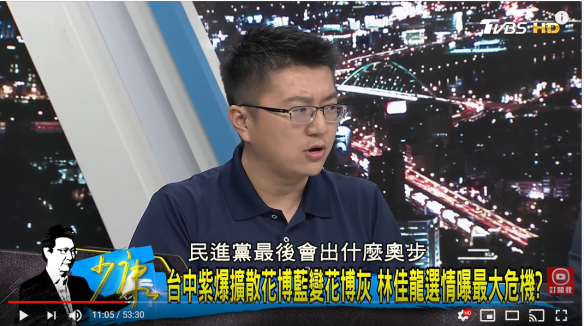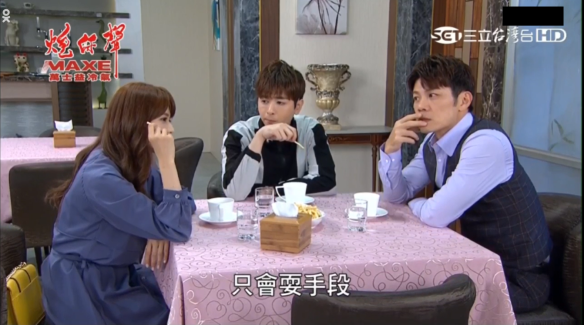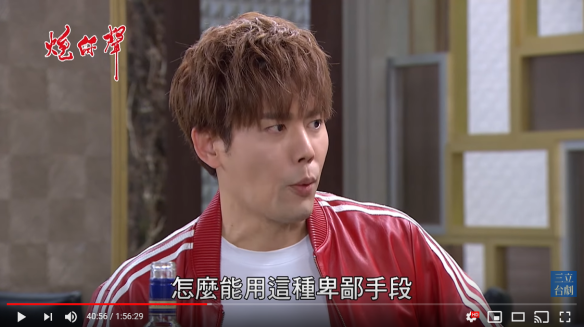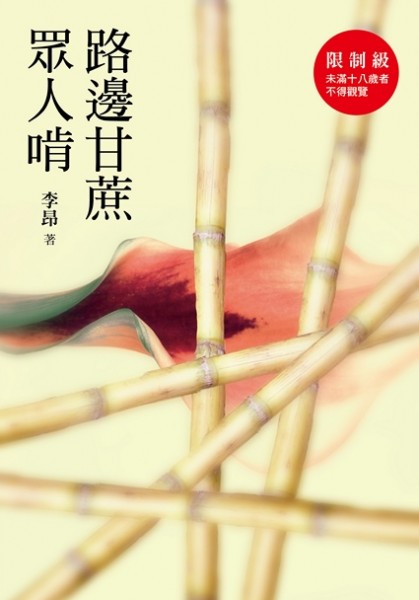The fun thing about Taipei is that political opinions are often very in your face, whether it is a taxi driver going on about how the ruling party is driving the economy into the ground or a random bit of graffiti scrawled on a traffic box about the Taoyuan Mayor that piques your curiosity as to the context:

太子鄭文燦
Crown prince Cheng Wen-tsan
The frame of reference for this fantastic piece of “artwork” dates back to the words of Taipei City Councilor Lo Chih-chiang (羅智強) back in May. He suggested that there were double standards going on, in that the 1st Mayor of Taoyuan Cheng Wen-tsan (鄭文燦) had received special treatment when it came to the Novotel outbreak of coronavirus because of his favorable position in the ruling Democratic Progressive Party, as Lo put it he is a 「綠朝太子」 “the crown prince of the Green dynasty” – here green is a reference to the colors of the DPP vs the blue of the opposition KMT (Lo’s party). The accusation is that Cheng was able to push all of the responsibility on to the central government because of this special treatment, while other mayors got lambasted for doing the same. Lo then went on to taunt Taipei Mayor Ko Wen-je (柯文哲), asking him if he was jealous of this special treatment (an attack based on Ko’s tumultuous past relationship with the DPP).
Ko–who always seems to have a quip at the ready–.replied that if he’d pushed all the the responsibility to the central government, the situation would have been f*cked long ago and he doesn’t have it as easy as some (pointing no elbows at Cheng I’m sure).








 I thought this clip from Democratic Progressve Party legislator Wu Bing-rui (吳秉叡) talking about New Power Party legislator Huang Kuo-chang (黃國昌)was quite amusing. Huang backed out of signing an agreement on the 7 day holiday bill and insisted on changing the language from “completed examination (of the bill)” to “examination”, supposedly due to pressure from labor groups, much to the chagrin of the majority leader of the Legislative Yuan Ke Chien-ming (柯建銘). Ke then called Huang a 「媽寶」 or “mummy’s boy”. The change in the language doesn’t really do much to the content of the bill, as it has the same effect with or without the word “completed”. Wu has taken a lot of flak for his defiant response to protests by labor groups.
I thought this clip from Democratic Progressve Party legislator Wu Bing-rui (吳秉叡) talking about New Power Party legislator Huang Kuo-chang (黃國昌)was quite amusing. Huang backed out of signing an agreement on the 7 day holiday bill and insisted on changing the language from “completed examination (of the bill)” to “examination”, supposedly due to pressure from labor groups, much to the chagrin of the majority leader of the Legislative Yuan Ke Chien-ming (柯建銘). Ke then called Huang a 「媽寶」 or “mummy’s boy”. The change in the language doesn’t really do much to the content of the bill, as it has the same effect with or without the word “completed”. Wu has taken a lot of flak for his defiant response to protests by labor groups.

 The front side of the leaflet poses a question to Lim:
The front side of the leaflet poses a question to Lim: